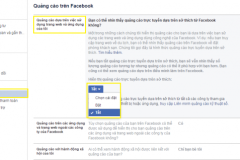May 15, 2025
AI has the power to cut care delays and manage data overload, but trust gaps among clinicians and patients threaten to slow adoption and impact
Amsterdam, the Netherlands – Royal Philips (NYSE: PHG, AEX: PHIA), a global leader in health technology, has released its 10th annual Future Health Index (FHI) report, highlighting the growing strain on global healthcare systems. The FHI 2025 Report, the largest global survey of its kind analyzing key concerns of healthcare professionals and patients, indicates AI holds promise for transforming care delivery. However, gaps in trust threaten to stall progress at a time when innovation is most needed.
“The need to transform healthcare delivery has never been more urgent,” said Carla Goulart Peron, M.D., Chief Medical Officer at Philips. “In more than half of the 16 countries surveyed, patients are waiting nearly two months or more for specialist appointments, with waits in Canada and Spain extending to four months or longer. As healthcare systems face mounting pressures, AI is rapidly emerging as a powerful ally, offering unprecedented opportunities to transform care and overcome today’s toughest challenges.”
Long waits, worsening outcomes
The FHI 2025 report reveals 33% of patients have experienced worsening health due to delays in seeing a doctor, and more than 1 in 4 end up in the hospital due to long wait times. “Cardiac patients face especially dangerous delays, with 31% being hospitalized before even seeing a specialist. Without urgent action, a projected shortfall of 11 million health workers by 2030 could leave millions without timely care,” Dr. Peron added.
Clinician burnout and data burdens call for digital relief
More than 75% of healthcare professionals report losing clinical time due to incomplete or inaccessible patient data, with one-third losing over 45 minutes per shift, adding up to 23 full days a year lost by each professional. “These inefficiencies amplify stress on already understaffed teams and contribute to burnout,” said Gretchen Brown, RN, VP and Chief Nursing Information Officer at Stanford Health Care. “Recognizing this, as clinicians, we see AI as a solution and understand that delayed adoption can also carry major risks.”
Of the nearly 2,000 healthcare professionals surveyed, if AI is not implemented:
- 46% fear missed opportunities for early diagnosis and intervention
- 46% cite growing burnout from non-clinical tasks
- 42% worry about an expanding patient backlog
Trust gaps remain the biggest barrier to widespread AI adoption
While clinicians are generally optimistic, the FHI 2025 report highlights a significant trust gap with patients – 34% more clinicians see AI’s benefits than patients do, with optimism especially lower among patients aged 45 and older. Even among clinicians, skepticism remains: 69% are involved in AI and digital technology development, but only 38% believe these tools meet real-world needs. Concerns around accountability persist, with over 75% unclear about liability for AI-driven errors. Data bias is another major worry, as it risks deepening healthcare disparities if left unaddressed. “To build trust with clinicians, we need education, transparency in decision-making, rigorous validation of models, and the involvement of healthcare professionals in every step of the process,” Brown added.
The path forward: human-centric AI integration
Patients want AI to work safely and effectively, reducing errors, improving outcomes, and enabling more personalized, compassionate care. Clinicians say trust hinges on clear legal and ethical standards, strong scientific validation, and continuous oversight. As AI reshapes healthcare, building trust is essential to delivering life-saving innovation faster and at scale.
“To realize the full potential of AI, regulatory frameworks must evolve to balance rapid innovation with robust safeguards to ensure patient safety and foster trust among clinicians,” said Shez Partovi, Chief Innovation Officer at Philips. “By 2030, AI could transform healthcare by automating administrative tasks, potentially doubling patient capacity as AI agents assist, learn, and adapt alongside clinicians. To that end, we must design AI with people at the center—built in collaboration with clinicians, focused on safety, fairness, and representation—to earn trust and deliver real impact in patient care.”
About the Future Health Index 2025
The Future Health Index is the largest global survey of its kind, analyzing the priorities and perspectives of healthcare professionals and patients across multiple countries. The Future Health Index 2025 investigates how innovative technologies, particularly AI, can empower healthcare professionals to deliver better care to more people. For more information, or to download the full FHI 2025 Global Report, visit www.philips.com/futurehealthindex-2025.
For further information, please contact:
Kathy O’Reilly
Philips Global External Relations
Tel.: +1 978-807-1449
E-mail: kathy.oreilly@philips.com
About Royal Philips
Royal Philips (NYSE: PHG, AEX: PHIA) is a leading health technology company focused on improving people’s health and well-being through meaningful innovation. Philips’ patient- and people-centric innovation leverages advanced technology and deep clinical and consumer insights to deliver personal health solutions for consumers and professional health solutions for healthcare providers and their patients in the hospital and the home.
Headquartered in the Netherlands, the company is a leader in diagnostic imaging, ultrasound, image-guided therapy, monitoring and enterprise informatics, as well as in personal health. Philips generated 2024 sales of EUR 18 billion and employs approximately 67,200 employees with sales and services in more than 100 countries. News about Philips can be found at www.philips.com/newscenter.
Attachments
- FHI 2025 Global Report Infographic
- Family members
- A healthcare professional and their patient in discussion














